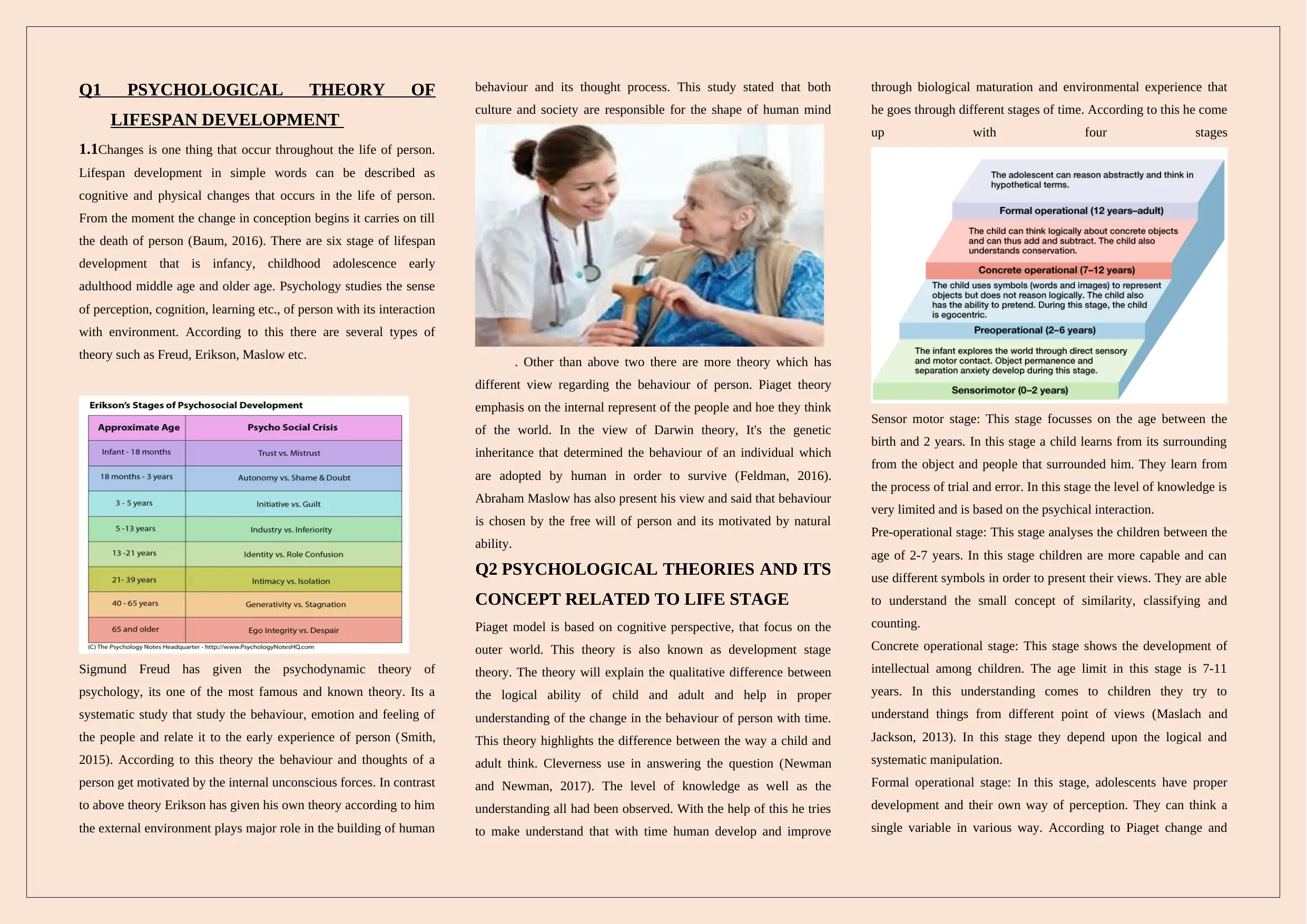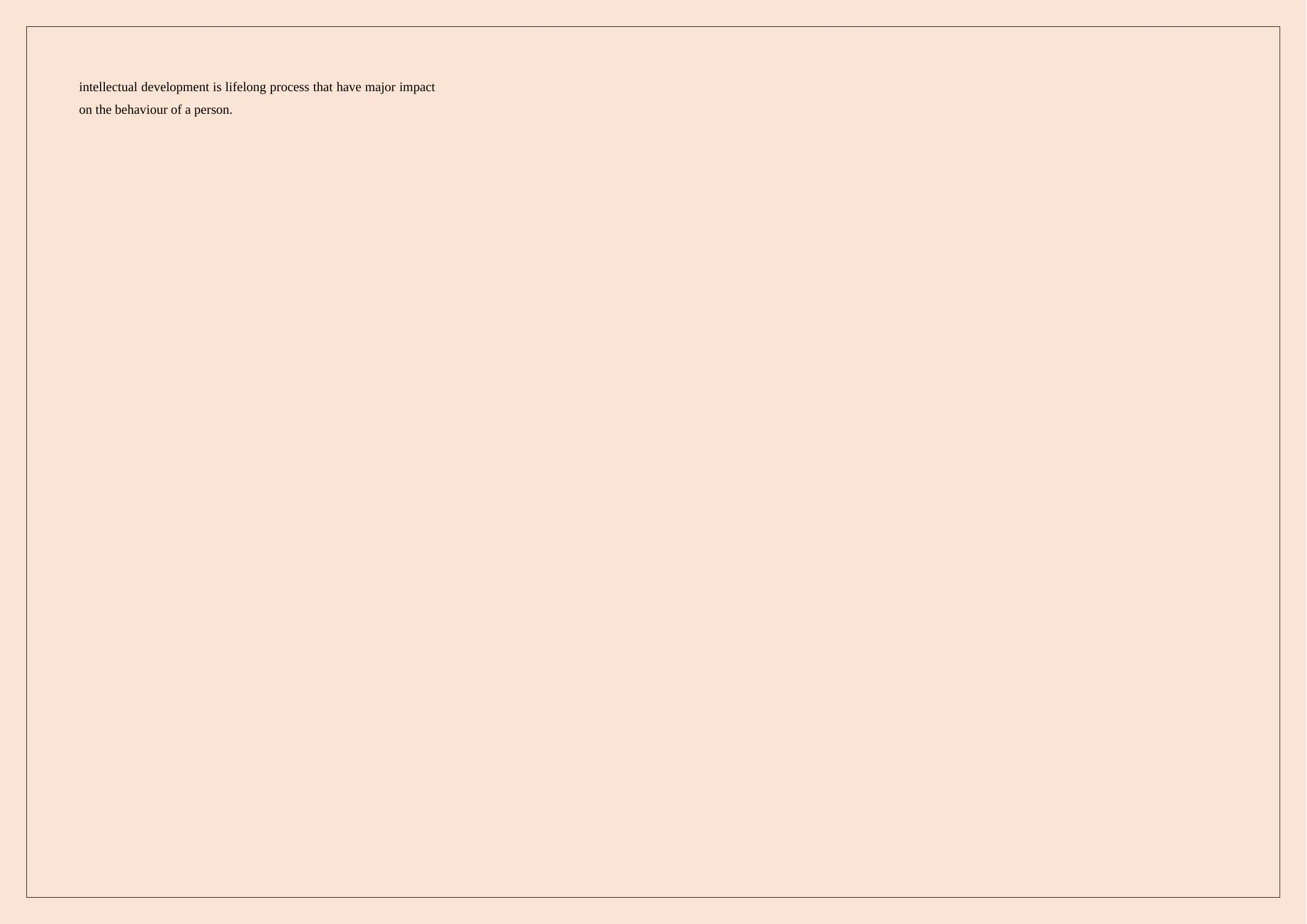An Analysis of Psychological Theories on Lifespan Development
VerifiedAdded on 2020/06/04
|2
|704
|43
Essay
AI Summary
This essay provides an overview of psychological theories related to lifespan development, focusing on the perspectives of prominent figures such as Freud, Erikson, and Piaget. It explores how these theories explain changes in human behavior, cognition, and emotional development across different life stages. The essay examines the core concepts of each theory, including Freud's psychodynamic approach, Erikson's emphasis on psychosocial stages, and Piaget's cognitive development stages. It also analyzes the impact of environmental factors and internal processes on individual development. The essay highlights Piaget's stages of cognitive development, including the sensorimotor, pre-operational, concrete operational, and formal operational stages, and how these stages reflect the intellectual growth of children and adolescents. By discussing these theories, the essay aims to provide a comprehensive understanding of the psychological processes that shape human development throughout the lifespan. The essay uses different sources to explain the concepts of the theories.
1 out of 2







![[object Object]](/_next/static/media/star-bottom.7253800d.svg)